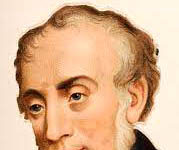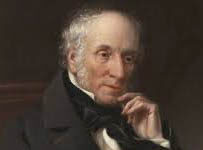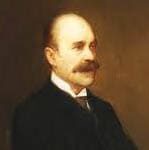P B Shelley’s Contributions to the History of the Principles of Literature
P B Shelley’s Contributions to the History of the Principles of Literature
P B Shelley’s Contributions to the History of the Principles of Literature
P.B. Shelly (1792-1822) was one of the greatest of the romantic poets of England. But besides, being a great poet he was a great literary critic also. His criticism is mainly theoretical and all his critical theories are scattered over his letters (written from time to time to his friends and relatives) prefaces to his books and a few prose writings. But his reputation as a critic rests mainly on his small treatise entitled The Defense of Poetry. This treatise was written in 1821, while he was a young poet of twenty-nine, just one year before his death. This critical work on poetry was written by him as a reaction and response to Thomas love Peacock’s book on poetry entitled Four Ages of Poetry. This book by Peacock was mainly an attack on poetry. Peacock tried his best in his book to degrade poetry from its original dignity. In this book, Peacock divided all poetic productions into four ages as—the Iron Age, the Golden Age, the Silver Age and the Brass age. Peacock said that poetry was original in the Iron Age and it flourished with the noblest productions in the Golden Age. Then came the Silver Age in which poetry became artificial and trivial. And then came the Age of Brass when poetry began to be decayed and decline. Their own age, i.e. the Romantic Age was the brass age of poetry. And thus Peacock went against poetry and lowered its dignity as much as he could. Again he condemned the poets of his age and said “A poet in our time is a semi-barbarian in a civilized community.” This comment by Peacock certainly attacked the poets and poetry of the age and thus he insulted the poets. The poets of the age thought and felt to be condemned and crushed by him. But no critic or poet dared to stand against Peacock’s utterance. It was the young poet Shelley, who had already established himself as a poet, came out boldly with a view to defend poets and poetry from the vehement attack of Peacock and wrote his masterpiece of criticism, The Defense of Poetry as a strong immediate reply to Peacock’s wild and whimsical comments. On this occasion, this work reminds us of Philip Sidney’s Apology of Poetry which was also written as a reply to Stephen Gosson’s attack on poetry. The aim of both was to assert the nobility, dignity, and usefulness of poetry refuting the barbaric attacks on poetry by Peacock and Stephen Gosson. Shelly derived inspiration from Philip Sidney and he planned the outline of his book following the work of Sidney and in defending poetry Shelly often takes the way of Sidney and quotes from him. Along with defending poetry with arguments and reasons against Peacock’s charges, Shelly expressed his own theories and principles on poetry also. As he goes on to refute Peacock’s fatal view, he goes on to establish his own views on the definition of poetry, nature of poetry, function and of utility of poetry and the use of meter and rhyme in poetry. Let us consider his views on these points one by one, though Shelly has not propounded his views systematically.
P B Shelley’s Contributions to the History of the Principles of Literature
Definition of Poetry
First of all, let us see into the Definition of Poetry by P B Shelley. Besides his arguments and reply to Peacock’s, Shelly exalted poetry highly and set it upon all branches of literature and said that poetry is the highest of all human powers because poetry is a more directly creative branch of all arts. And it is more powerful and more creative because imagination is the root of poetry and by imagination, a poet can create better than nature. Giving a high place of imagination in poetry Shelly defines ‘Poetry as the expression of imagination.’
He considers more that everybody who cultivates imagination and expresses imagination in life is a poet. He says:
”All are poets who express the imagination in life: Sculptors, artists, musicians even law-givers, and the founders of religions.”
P B Shelley’s Contributions to the History of the Principles of Literature
On the Nature of Poetry
On the Nature of Poetry, Shelly upholds his views in the following ways:
“Poetry is indeed something divine. It is at once the centre and circumference of knowledge. It is that which comprehends all sciences and that to which all sciences must be referred.”
“Poetry is the record of the best and happiest moments of the happiest and the best minds.”
“Poetry makes immortal all that is best and most beautiful in the world.”
“Poetry turns all things to loveliness. It exalts the beauty of that which is the most beautiful. It marries exaltation and horror, grief and pleasure, certainty and change.”
“Poetry redeems from decay the visitation of the divinity in man.”
Thus from the above-quoted lines, it has come to a clarification that Shelly attributed divine nature to poetry and uplifted it above all arts and science.
P B Shelley’s Contributions to the History of the Principles of Literature
Nature of Poets
Shelly sets forth his views on the Nature of Poets also and gives the highest place. He exalts poets as,
“Poets are the hierophants of an unapprehended inspiration. The mirrors of the gigantic shadow which futurity casts upon the present. .……. poets are the unacknowledged legislators of the world.”
P B Shelley’s Contributions to the History of the Principles of Literature
Function or Utility of Poetry
After this, Shelley says about the Function or Utility of Poetry. Shelley is against all immorality and to assert the function of poetry he speaks in favor of morality. He says that poetry should not be immoral, because it is above all branches of arts and science. It is better than either philosophy or history. But he considers that to teach morality through poetry is wrong and direct deductive poetry is of an inferior kind. He says,
”The highest moral effect of poetry lies in its appeal to the imaginative and emotional faculties; in the development it gives to these, it enlarges the powers of the mind itself.”
P B Shelley’s Contributions to the History of the Principles of Literature
Use of Rhyme and Meter in Poetry
About the Use of Rhyme and Meter in Poetry Shelly says that rhyme and meter are not essential elements in poetry. The essential element of poetry is dignity and nobility of thoughts. Meter and rhyme make poetry harmonious and canorous only, without meter and rhyme there may be poetry and with both, there may not be poetry. In this respect, he asserts Bacon, Plato as poets because their thoughts were noble and dignified and in their matter, they could draw imagination.
These are the views set forth by Shelly on poetry. But as a lawgiver of poetry Shelly suffers from certain faults and weaknesses, as—
First, Shelly’s aim in writing his masterpiece, Defense of Poetry was not to make principles for poetry but to refute poetry against the attack of Peacock. So his theories are displayed not systematically but in a chaotic manner.
Secondly, in pronouncing his views, Shelley becomes exaggerated and over-emotional as to give a reply to Peacock’s, he exalted poetry so much and lifted it up of all arts. So his views may be called to be poetic and imaginative as his definition of poetry is. Theory or principle should never be poetic and sentimental.
Thirdly, Shelley is not original in his thoughts concerning poetry. He often takes Shelter on Philips Sidney’s argument to defend poetry. Moreover, he planned and drew the outline of his Defense of Poetry after Sidney’s Apology of Poetry.
Fourthly, Shelley opines more than an analysis of his arguments.
Fifthly, Shelley is capricious and runs from one point to another swiftly and without keeping up harmony.
Those are the faults of Shelley as a critic. But in spite of these faults, Shelley is a great critic of his day, because by his criticism he defended and guarded poetry and poets against the immediate enemy of poetry. Shelley was moreover in his age younger than all critics. He wrote ‘Defense of Poetry’ when he was only twenty-nine. To try the theory of poetry in such an age is certainly praiseworthy. Had he not died at the age of thirty, his critical faculty would have developed more with the passing of years and then he would be able to render more contributions to the history of literary criticism. If in future any attack falls on poetry Shelley’s Defense of Poetry would be a ready and immediate guard. So, it may be called that Shelley may not be a reputed and often quoted critic yet, he may remain as an armor of the poetry in future also if any adverse critic stands against poetry. 0 0 0.
P B Shelley’s Contributions to the History of the Principles of Literature
You May Like:
‘Poetry is the Criticism of LIfe’ Mathew Arnold-An Explanation
N. B. The article ‘P B Shelley’s Contributions to the History of the Principles of Literature’ originally belongs to the book entitled ‘ Essays on Literary Theory and Principle‘ by Menonim Menonimus. P B Shelley’s Contributions to the History of the Principles of Literature
P B Shelley’s Contributions to the History of the Principles of Literature
Books on Literary Criticism by M. Menonimus:
- World Short Story Criticism
- World Poetry Criticism
- World Drama Criticism
- World Novel Criticism
- World Essay Criticism
- Indian English Poetry Criticism
- Indian English Poets and Poetry Chief Features
- Emily Dickinson’s Poetry-A Thematic Study
- Walt Whitman’s Poetry-A Thematic Study
- Critical Essays on English Poetry
- Tawfiq al-Hakim’s Novel: Return of the Spirit-An Analytical Study
- Tawfiq al-Hakim’s Novel: ‘Yawmiyyat Naib Fil Arayaf’-An Analytical Study
- Analytical Studies of Some Arabic Short Stories
- A Brief History of Arabic Literature: Pre-Islamic Period (500 AD-622 AD)
- A Brief History of Arabic Literature: Early Islamic Period (622 AD-661 AD) …
Related Search:
- P B Shelley Literary Criticism
- P B Shelley
- P B Shelley’s A Defense of Poetry
- Literary Criticism of T S Coleridge
- History and Principles of Literary Criticism
- Critical Analysis of Coleridge’s Imagination and Fancy
- Coleridge’s Definition of Poetry
- Arnold’s Concept of Poetry as a Criticism of life
- Poetry Definition Types











